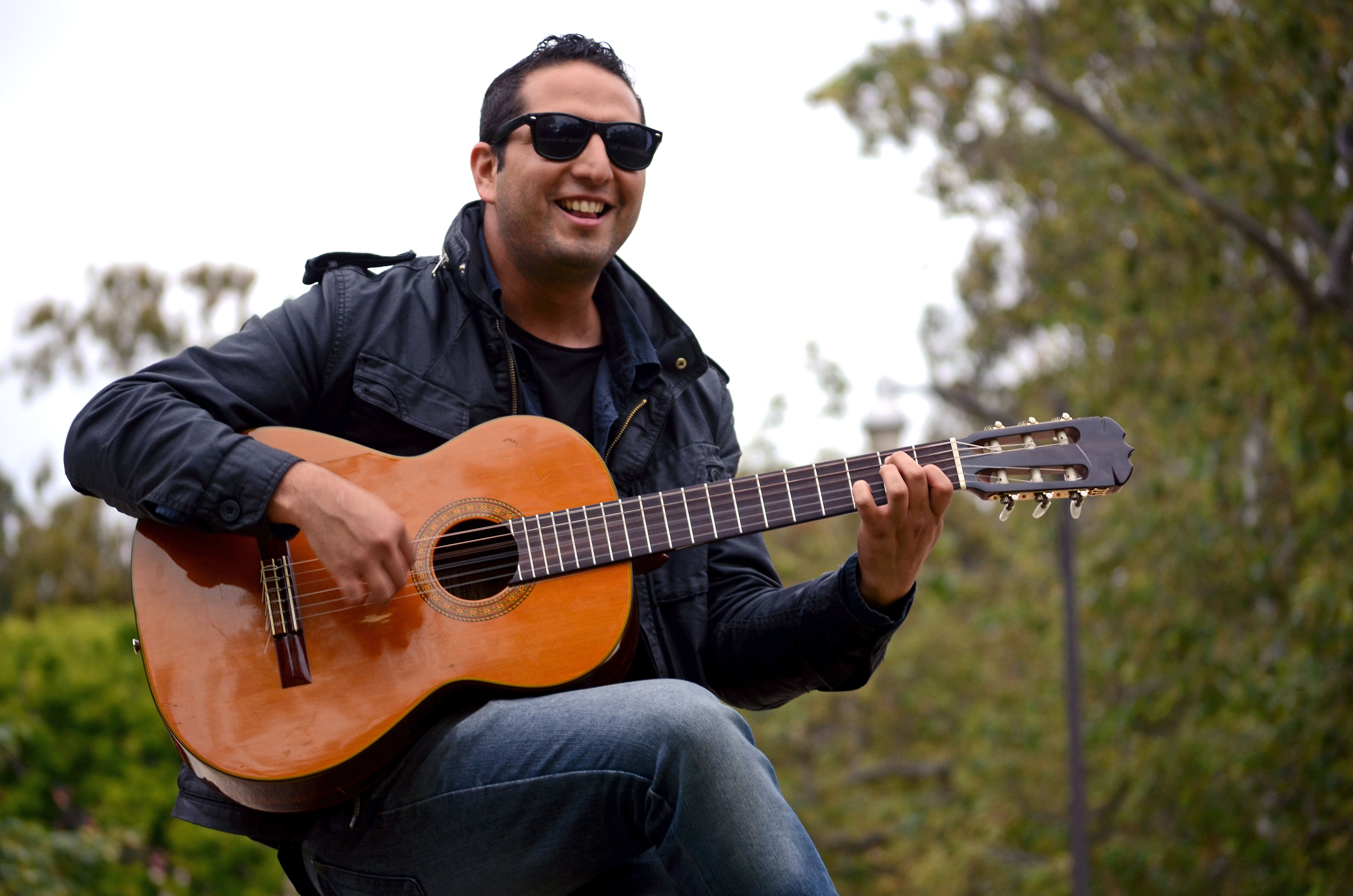On the way out from his Westwood apartment, David Villafaña grabs his keys, wallet, phone ““ and his glossy orange flamenco guitar. It’s a ritual that started long before college at the age of 13.
Villafaña, a recent UCLA graduate with a degree in ethnomusicology, plans to release his first EP titled “Won’t Stop” this August after recording it over the past school year. Villafaña plays the flamenco guitar, the Spanish version of a classical guitar, to perform and craft music that intertwines genres such as folk and pop-rock. He said he considers his sound to have a mix of Latin rhythm with an acoustic-indie vibe.
Raised in San Diego, Villafaña said his familiarity with Latin American culture has informed what he likes to describe as the relaxed and chill style that largely characterizes his music.
Villafaña said he attempts to reveal his Latin roots on his EP in songs like “Camino de Jinete” (The Path of the Horseman), an adaptation of a poem by Federico GarcÃa Lorca. Lorca’s poem, “Canción del Jinete” (The Horseman’s Song), tells of a distraught traveler on his way to Córdoba.
“My Spanish literature professor asked me to do something musical with the poem. I sat down with a guitar and … it just came to me. I’m really excited about that,” Villafaña said.
He said he is most excited about it because it allows him to show how literature and music are synonymous.
Villafaña also said this feel-good vibe allows him to tackle a number of issues that are essentially at the root of many of our generation’s problems. He focuses his songs on troubled relationships, misguided wars and people who do not believe in themselves.
“It’s my job to help people feel free and … feel good through intelligent songwriting and sincere music,” Villafaña said.
He said his ability to captivate his audience begins with his own personal philosophy. During each of his performances at venues in Los Angeles and San Diego, Villafaña said he works to capture the attention of his listeners within the first 10 seconds with his upbeat musical style involving his guitar doubling as a percussive instrument.
Villafaña said he feeds off of this excitement as a muse for his own writing. He said he can’t replace the feeling of inspiration he gets when the audience is on its toes, dancing and singing to a song he wrote.
Terrance Harrison, a UCLA alumnus and the producer and sound engineer for Villafaña’s EP, met Villafaña at UCLA through the department of ethnomusicology. He said he plans to record Villafaña’s music, which he calls exceptional. Harrison plans to compile these songs on the EP and said he hopes this will help Villafaña grow as an artist, songwriter and musician.
Villafaña, however, is not the only artist featured on “Won’t Stop.” Other artists, primarily from UCLA, are collaborating with Villafaña on his quest to global attention and reception, one of whom sings in French to add to his global appeal.
Mathilde Bresson, a third-year American Indian studies student, and a singer and songwriter from Paris, is one of the artists featured on Villafaña’s upcoming EP. In the single “Won’t Stop,” a song about encouraging people to do what they love, Bresson wrote a verse and added a few harmonies to carry out Villafaña’s vision for the song.
She said harmonizing is something that occurred organically for the two soon after they first met at one of Villafaña’s performances at the university apartments last year.
“I can pretty much tell where he is heading with a song, and he can tell what I want to sing and when,” Bresson said. “We don’t need to explain to one another what we’re thinking, we’re on the same wavelength.”
Villafaña said there is nothing else that brings him as much fulfillment as music, no matter how risky the industry can be.
“In order to live an extraordinary life, you’ve got to take extraordinary risks. That’s what music is to me. It’s like a (cave diver) going down a rope unsure of what’s going to happen, but staying strong and giving it all they’ve got,” Villafaña said.
